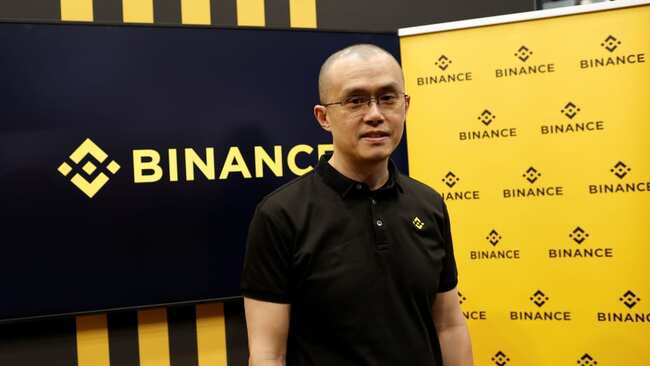Highlights:
- Zhao denied claims he helped connect Trump-linked WLFI with foreign officials during international trips.
- The report linked the former CEO to a project involving the president’s family.
- Zhao noted that the media platform is being used to spread false stories about crypto leaders.
Changpeng Zhao, the former Binance CEO, has responded to a recent article from the Wall Street Journal. The story stated Zhao helped World Liberty Financial, a DeFi company associated with the Trump family, to conduct its business. The report claims Zhao helped make arrangements for group meetings overseas, including in Pakistan. Zhao disagreed and pointed out that the report was based on false presumptions.
In a post on X dated May 23, Zhao said he did not arrange any introductions between WLFI and officials in Pakistan. He mentioned that he had not introduced Bilal Bin Saqib to WLFI. According to him, Saqib, chief of the Pakistan Crypto Council, already knew the team, and they had worked together in the past. Zhao mentioned his first encounter with the chief was when he visited the country.
Another hit piece from Wall Street Journal. WSJ instead of doing journalism, has pretty much resorted to Cunningham’s Law, with negative intentions.
"Cunningham's Law: The best way to get the right answer on the Internet is not to ask a question; it's to post the wrong answer."…
— CZ 🔶 BNB (@cz_binance) May 23, 2025
The WSJ report claimed that Zhao’s actions helped WLFI secure a memorandum of understanding with the Pakistani government. It also said that Saqib later became an advisor to the group. Zhao denied both claims and stated that the article built a narrative based on false links. He called the article misleading and said that it contained several errors that ignored facts.
Claims of Diplomatic Overlap and Crypto Influence Stir Concern
The article also explored WLFI’s connections to Donald Trump’s sons, Eric and Donald Jr., who are involved in managing the project. It noted that Zach Witkoff, a co-founder of WLFI, is the son of Steve Witkoff, who serves as a U.S. envoy under the Trump administration. The media platform raised concerns that there was an overlap of business interests and diplomatic roles. It suggested that official duties could have supported private crypto interests.
The WLFI project raised over $600 million through its token offerings. However, WSJ claims that the group has not revealed the identities of most of its investors. However, Justin Sun has invested over $75 million into the project. Sun, along with other $TRUMP holders, attended a dinner hosted by Trump on May 22. Photos from the event were shared online. The event was meant to bring together major investors in Trump’s official memecoin.
Binance Founder Labels WSJ Coverage as Anti-Crypto Agenda
CZ said the report reflected a broader attempt by media outlets to damage the reputation of the crypto industry. He described the publication as a “mouthpiece” for those opposing crypto growth in the U.S. He claimed some groups want to block the country from becoming a global center for digital assets. Zhao also said these stories aim to discredit crypto leaders.
WSJ had earlier alleged that the Binance founder agreed to cooperate with U.S. authorities in a case against Justin Sun. Zhao denied this and said that people who cooperate with prosecutors do not go to prison. He had already begun serving his sentence. He also said the WSJ ignored corrections his team submitted before publication.
Best Crypto Exchange
- Over 90 top cryptos to trade
- Regulated by top-tier entities
- User-friendly trading app
- 30+ million users
eToro is a multi-asset investment platform. The value of your investments may go up or down. Your capital is at risk. Don’t invest unless you’re prepared to lose all the money you invest. This is a high-risk investment, and you should not expect to be protected if something goes wrong.






